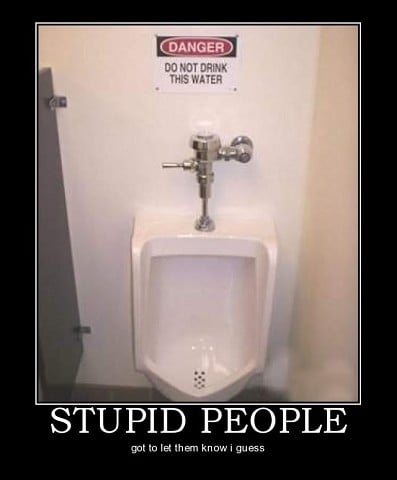|
|
|
Please support Geekzone by subscribing, or using one of our referral links: Quic Broadband (free setup code: R587125ERQ6VE) | Samsung | AliExpress | Wise | Sharesies | Hatch | GoodSync
Whatifthespacekeyhadneverbeeninvented?
Please support Geekzone by subscribing, or using one of our referral links: Quic Broadband (free setup code: R587125ERQ6VE) | Samsung | AliExpress | Wise | Sharesies | Hatch | GoodSync
andrewNZ: How about a Peter Reader reply like.
Doing your own electrical work?
Here’s a few basic things you should know.
See http://www.ewrb.govt.nz/ for more detail.
- You must be the owner of the property or equipment. If you’re not, you can't do any electrical work on it.
- You're not allowed to work on anything live.
- All work done and equipment used has to comply with all the current regulations.
- If you're replacing something, the replacement has to be basically the same. You can't replace single sockets with doubles, or put a bigger water heater element in.
And a few safety tips:
- If you don't know how to do something, ask a properly trained professional before you start.
- Turning off a switch does not guarantee something is off.
- Most cheap testers are not suitable for mains work. Use a good quality tester, your life depends on it.

andrewNZ: So what about dropping the safety bit? then you're just left with some solid advice...
KiwiNZ: What can you do? There is a limited amount of electrical work you can do when it comes to wiring in your own home. This is listed in regulation 64 of the Electricity (safety) Regulations 2010 and includes:
Replacing switches,
socket outlets,
lamp holders,
ceiling roses,
water heater switches,
thermostats and elements.
Repairing light fittings.
Moving, repairing or replacing flexible cords connected to permanently connected outlets or ceiling roses.
Disconnecting and reconnecting permanently wired appliances.
Moving switches, sockets and lighting outlets, but only if they are wired with tough plastic-sheathed cables.
Installing, extending, or altering any cables (except the main cables that come from the street to your switchboard).
You have to get the finished job checked and tested by a licensed electrical inspector. You cannot connect your work to the electricity supply yourself. The inspector will connect it, test it, and issue you with a Certificate of Compliance (see below) if it complies with safety requirements. Fitting plugs, cord extension sockets or appliance connectors to a flexible cord.
Replacing fuse wires and fuse cartridges. Repairing appliances.
http://consumerbuild.org.nz/publish/diy/diylegal-electrical.php
gregmcc: It's a bit of a mess because the rules say "any electrical work" which technically would mean that your auto electrician should issue a ESC, Security alarm installers should issue a ESC, phone/data/comms tech should issuse a ESC.
Whatifthespacekeyhadneverbeeninvented?
ubergeeknz:andrewNZ: So what about dropping the safety bit? then you're just left with some solid advice...
I think the safety bit should stay, just because people are not knowledgeable about electrical safety doesn't mean they deserve to die IMO, or necessarily that they are stupid.
Klipspringer: If there was ever a need for a "-1" button this is it. If I had to see something like this on geekzone I would be out of here, ha and some of you would probably appreciate that. ;-)
Please support Geekzone by subscribing, or using one of our referral links: Quic Broadband (free setup code: R587125ERQ6VE) | Samsung | AliExpress | Wise | Sharesies | Hatch | GoodSync
Klipspringer:andrewNZ: How about a Peter Reader reply like.
Doing your own electrical work?
Here’s a few basic things you should know.
See http://www.ewrb.govt.nz/ for more detail.
- You must be the owner of the property or equipment. If you’re not, you can't do any electrical work on it.
- You're not allowed to work on anything live.
- All work done and equipment used has to comply with all the current regulations.
- If you're replacing something, the replacement has to be basically the same. You can't replace single sockets with doubles, or put a bigger water heater element in.
And a few safety tips:
- If you don't know how to do something, ask a properly trained professional before you start.
- Turning off a switch does not guarantee something is off.
- Most cheap testers are not suitable for mains work. Use a good quality tester, your life depends on it.
If there was ever a need for a "-1" button this is it. If I had to see something like this on geekzone I would be out of here, ha and some of you would probably appreciate that. ;-)
Whatifthespacekeyhadneverbeeninvented?
andrewNZ: I'm open to being proved wrong greg, but my understanding is a safety certificate is only required for prescribed electrical work. This eliminates compliant home owners work.
Regualtion 74A Electrical safety certification
After prescribed electrical work on an installation or part installation is complete, the person who completed the work must issue an electrical safety certificate for the installation or part installation
|
|
|
